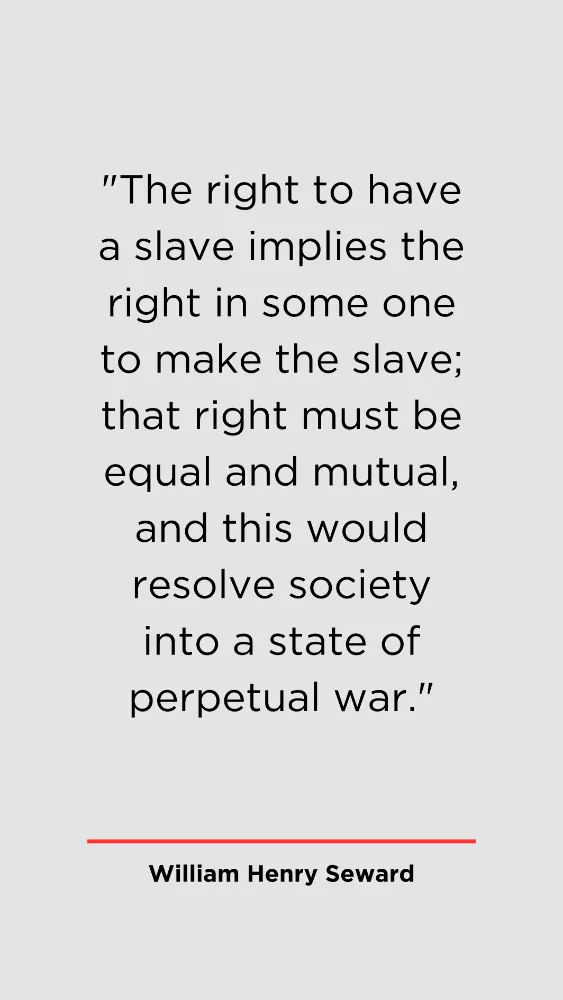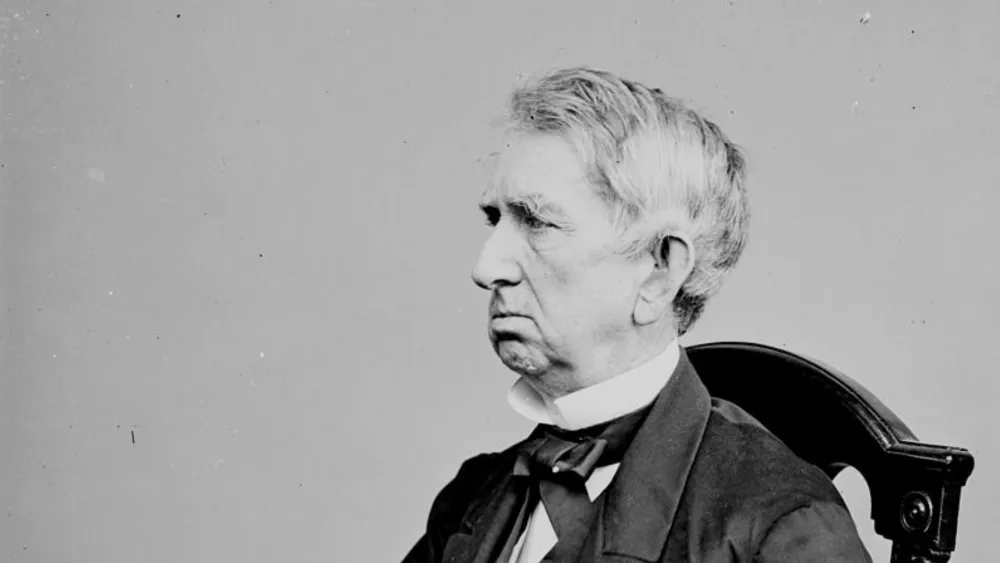William Henry Seward, often referred to as the “Architect of American Destiny,” stands as a luminary figure in the annals of American history. He left an enduring influence not only through the monumental political decisions he made. He also expressed his commitment to the core principles that define the American ethos.
Profound changes in the United States marked Seward’s era. The 19th century brought about rapid expansion, technological advancements, and a looming crisis over the institution of slavery.
In the midst of this turbulence, Seward emerged as a guiding light. He provided vision and leadership that would prove instrumental in the nation’s development.
Seward’s early experiences, growing up in a modest farming family, and his subsequent journey through academia instilled in him a deep appreciation for the transformative power of education.
This appreciation translated into a lifelong commitment to expanding educational opportunities during his time as Governor of New York and later as a U.S. Senator.
The Value of Education in the Seward Family
Born into the modest surroundings of rural Orange County, New York, on May 16, 1801, William H. Seward’s early life was steeped in the values of hard work and determination.
The Seward family, while not affluent, had a profound appreciation for the transformative power of education. They recognized that knowledge was the key to a brighter future. They believed that this conviction was deeply ingrained in young William from an early age.
Seward’s journey towards becoming a revered statesman began with his education. He attended local schools, displaying an insatiable curiosity and a remarkable aptitude for learning.
His dedication to his studies and the wisdom imparted by his teachers set him on a path toward intellectual and civic engagement.
This educational journey significantly turned when Seward enrolled at Union College in Schenectady, New York. At the college, he excelled academically and honed his intellectual pursuits, which would serve as the cornerstone of his future career.
Here, he began to exhibit a profound interest in law and politics, planting the seeds of a future dedicated to shaping the destiny of a burgeoning nation.
Political Career of William Henry Seward
Seward’s transition from an accomplished lawyer to a political luminary was a natural progression in his illustrious career. After establishing a thriving legal practice in Auburn, New York, he was drawn into the dynamic world of politics.
When Seward was chosen to serve in the New York State Senate in 1830, it began a career distinguished by a steadfast dedication to public service.
Throughout his political journey, William H. Seward’s affiliation with the Whig Party was a defining characteristic of his political identity. During his era, the Whig Party played a substantial role in shaping American politics.
Seward’s association with this influential party would give him the platform to champion his principles and ideals.
At the heart of Seward’s political convictions lay his steadfast opposition to the institution of slavery. He was an advocate for the abolitionist movement. Therefore, he lent his voice, pen, and influence to the cause of emancipation.
His impassioned speeches and writings resounded far and wide. Capturing the nation’s attention and establishing him as a prominent and influential anti-slavery figure during great moral and political turmoil.
The “Irrepressible Conflict” and the Antislavery Movement
Seward’s indomitable spirit and resolute commitment to the abolitionist cause culminated in one of the most memorable phrases in American political history. In his influential 1858 speech, he eloquently declared the conflict between the free and enslaved persons states to be an “irrepressible conflict.”
He forcefully argued that this clash was not a matter of mere politics but a moral and ideological struggle, the resolution of which was inevitable and inescapable.
However, for all his eloquence and conviction, Seward’s stance against slavery made him the target of vehement opposition, particularly from the Southern states and their ardent supporters.
As the nation’s divisions deepened, he faced threats to his safety and enduring attacks on his character. However, he refused to be silenced, standing firm in his belief that the institution of slavery was fundamentally incompatible with the principles upon which the United States was founded.
Seward’s commitment to the abolitionist movement extended far beyond words and speeches. He actively supported the Underground Railroad. This place is a clandestine network that assisted enslaved individuals in their quest for freedom.
William Henry Seward as the Secretary of State
One of the crowning achievements of William H. Seward’s distinguished political career unfolded during his tenure as the United States Secretary of State. His pivotal role under both Presidents Abraham Lincoln and Andrew Johnson was instrumental in navigating the complex diplomatic waters during the American Civil War.
Seward’s astute diplomatic finesse helped maintain European neutrality during the Civil War, a feat of profound significance.
His efforts prevented foreign intervention in the conflict, ensuring the United States could focus on resolving its internal crisis.
Seward’s commitment to preserving the Union and his adept diplomacy were crucial during the national upheaval.
In 1867, Seward orchestrated a transaction that initially garnered widespread ridicule and skepticism: the purchase of Alaska from Russia for $7.2 million.
This acquisition was quickly derided as “Seward’s Folly” by many, who questioned the value of the vast, remote territory.
The land known as “Seward’s Icebox” at the time has since blossomed into the state of Alaska. This region, once dismissed, has turned out to be a treasure trove of resources. It included valuable minerals, vast forests, and abundant fisheries.

Preserving National Unity during the Civil War
William Henry Seward’s legacy is a testament to the enduring impact of steadfast beliefs, dedication, and the indomitable spirit of a true statesman. His life’s work, defined by courage, conviction, and foresight, has made a lasting impact on American history. This legacy continues to inspire future generations.
Seward’s resolute defense of his principles, particularly his stance against the abhorrent institution of slavery, serves as a beacon of commitment to justice and human rights.
In the face of vehement opposition, he never wavered, using his influence, speeches, and writings to tirelessly advance the cause of abolition.
As the nation grappled with the turmoil of the Civil War, Seward’s astute diplomacy and strategic acumen averted foreign interference.
Ensuring that the United States remained united and resolved its internal conflict without external entanglements. His contributions underscore the significance of leadership and wisdom during times of national crisis.











